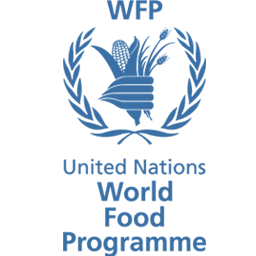
he United Nations World Food Programme (WFP) is the largest humanitarian organization fighting hunger in the world. Since 1968, WFP has been working in Niger to support poor women, men, boys and girls. We aim at reaching the Zero Hunger Goal by 2030 by supporting the Government’s efforts on two fronts : saving lives and changing lives.
To save lives, we work in crisis affected areas. We are present in the Lake Chad Basin where the violence instigated by the conflict with Boko Haram has caused the displacement of thousands of people. This crisis has had a negative impact on the stability of the Diffa region, located in the southeast of Niger. Consequently, the local population has become more vulnerable to food insecurity. The situation around the border with Mali is also very volatile and increasingly instable. WFP provides food assistance in these areas to support victims of this conflict, refugees, displaced persons, returnees and host local populations.
To change lives, we work throughout Niger to make people more resilient to shocks, particularly those induced by climate change, which threaten the agricultural production and livelihoods of the most vulnerable Nigeriens. Our package of integrated activities covers nutrition, school canteens and technical assistance for land restoration. WFP purchases part of its food supplies locally and from smallholder farmers in order to revitalize the national and local economy. We focus on capacity building with the government and communities, victims of repeated shocks. People manage to break the vicious circle of poverty and look towards a better future for themselves and their children.
WFP manages the United Nations Humanitarian Air Services (UNHAS). Some regions are far from the capital and more difficult to reach. Thanks to its aircrafts, UNHAS enables all humanitarian personnel working in Niger to quickly and safely reach locations where they have ongoing operations. It enables us to reach vulnerable people even in the most remote areas.
Independent studies have shown that WFP's interventions in Niger are bearing positive effects on the population. These results confirm that our efforts in support of the Government contribute, with the help of our donors, to the development of Niger.
STANDARD MINIMUM QUALIFICATIONS
Education: Advanced University degree in Transport Economics, Supply Chain, Logistics, Engineering, Business Management or other related field, or First University degree with additional years of related work experience and/or training/courses.
Language: International Professional: Fluency (level C) in English language. Intermediate knowledge (level B) of a second official UN language: Arabic, Chinese, French, Russian, Spanish, and/or WFP’s working language, Portuguese.
National Professional: Fluency (level C) in English language and the duty station’s language, if different.
ORGANIZATIONAL CONTEXT
These jobs are likely to be found in Headquarters (HQ), Regional Bureaux (RBs) or Country Offices (COs). In the field, job holders report to the Head of Field Office or Head of Logistics or the designate. In RBs and HQ, job holders report to a more senior Logistics Officer. Job holders operate with a high degree of independence, manage more junior staff to ensure that logistics operations and project objectives are achieved in full. Job holders are heavily involved in day–to-day activities and analytical work, and are likely to focus on one specific area of logistics (i.e. budget preparation and management, commodity and warehouse management, supply chain, fleet and workshop management, port operation management, logistics cluster and information management) or manage teams within logistics operations to ensure supply chain strategies are implemented.
JOB PURPOSE
To contribute to daily planning and coordination of WFP logistics operations including monitoring of services provided by contracted external organizations to ensure cost-effective operations and that set objectives are achieved in full.
KEY ACCOUNTABILITIES (not all-inclusive)
1. Contribute towards the development of logistics plans and processes ensuring compliance with wider logistics policies and WFP standards.
2. Support or manage logistics projects or operational activities following standard processes and contributing, directly or indirectly, to the effective delivery of food assistance to beneficiaries.
3. Collect and analyse data through research and networking with colleagues to recommend actions to senior staff to improve performance of local logistics operations.
4. Conduct regular financial analysis and budget reviews, drawing out insights and recommending actions to senior staff to optimise use of available funds.
5. Contribute to consolidation and preparation of operational pipeline planning, and to the management of operational aspects of the supply chain (procurement, shipping, port operation), including checking document and customs clearance readiness, loading and discharging operations and contracting of applicable transport, warehouse and any relevant logistics services.
6. Contribute to supply chain by providing technical support and guidance to other CO unit/ services, divisions, particularly for emergency response.
7. Guide and supervise more junior staff, acting as a point of referral and supporting them with more complex analysis and queries.
8. Collate data and contribute to preparation of accurate and timely reporting, including Key Performance Indicators (KPIs), supporting a WFP-wide view of logistics activities that enables informed decision-making and consistency of information presented to stakeholders.
9. Support the capacity building of WFP staff and partners for efficient and effective delivery of food assistance to beneficiaries (e.g. through the design and review of training materials).
10. Identify and build productive relationships with logistics colleagues and staff within the area of assignment to support an integrated approach to food assistance.
11. Follow emergency logistics preparedness practices, participate in preparation of CO Logistics Capacity Assessment (LCA), to ensure WFP are able to quickly respond and deploy food and needed resources to affected areas at the onset of the crisis.
12. Participate in the on-going review of internal processes and procedures and identify ways to increase the day-to-day efficiencies.
13. Act in an assigned emergency response capacity as required to meet emergency food assistance needs.
14. Other as required.
4Ps CORE ORGANISATIONAL CAPABILITIES
Purpose
- Understand and communicate the Strategic Objectives: Understands WFP’s Strategic Objectives and the link to own work objectives.
- Be a force for positive change: Flexibly adapts individual contributions to accommodate changes in direction from supervisors and internal/external changes (such as evolving needs of beneficiaries, new requirements of partners).
- Make the mission inspiring to our team: Recognizes and shares with team members the ways in which individual contributions relate to WFP’s mission.
- Make our mission visible in everyday actions: Sets own goals in alignment with WFP’s overall operations, and is able to communicate this link to others.
People
- Look for ways to strengthen people's skills: Assesses own strengths and weaknesses to increase self-awareness, and includes these in conversations on own developmental needs.
- Create an inclusive culture: Participates in open dialogue, and values the diverse opinion of others, regardless of background, culture, experience, or country assignment.
- Be a coach & provide constructive feedback: Proactively seeks feedback and coaching to build confidence, and develop and improve individual skills.
- Create an “I will”/”We will” spirit: Participates in accomplishing team activities and goals in the face of challenging circumstances.
Performance
- Encourage innovation & creative solutions: Shows willingness to explore and experiment with new ideas and approaches in own work.
- Focus on getting results: Consistently delivers results within individual scope of work on time, on budget and without errors.
- Make commitments and make good on commitments: Commits to upholding individual accountabilities and responsibilities in the face of ever-changing country or functional priorities.
- Be Decisive: Makes rational decisions about individual activities when faced with uncertain circumstances, including in times of ambiguity regarding information or manager direction.
Partnership
- Connect and share across WFP units: Seeks to understand and adapt to internal or cross-unit teams’ priorities and preferred working styles.
- Build strong external partnerships: Demonstrates ability to understand and appropriately respond to and/or escalate needs of external partners.
- Be politically agile & adaptable: Portrays an informed and professional demeanor toward internal and external partners and stakeholders.
- Be clear about the value WFP brings to partnerships: Provides operational support on analyses and assessments that quantifies and demonstrates WFP’s unique value as a partner.
OTHER SPECIFIC JOB REQUIREMENTS
Warehouse management and LESS (Logistics execution support system) management
12. Ensure coordination of warehouse management activities and supervise the warehousing and commodity accounting team in the country office, including training and performance management.
13. Ensure warehouse management according to standard procedures, controls are strictly followed, coordination with government warehousemen and logistics delivery services is maintained, ensure quality control is carried out during receiving, storage and shipping before food shipments.
14. Assess space availability and storage plans for efficient and optimal management of storage space.
15. In the event of food quality incidents, support investigation exercises to enable documentation and sharing of lessons learned, in order to reduce the recurrence of similar incidents;
16. Ensure that all LESS transactions are conducted in accordance with standard procedures and WFP guidelines.
Commodity Accounting
17. Manage WFP's food and NFA (Non-Food Items) accounting, including database creation and maintenance, verification of accounting documents, preparation of logistics reports and coordination with other WFP units.
18. Plan and organize monthly physical inventories, and ensure that these inventories are conducted at all WFP food storage locations on the last days of the month. Ensure that inventories are reconciled and captured in the system before the closing date.
19. In close liaison with the Programme, Budget and Programming Unit (BPU) and Donor Relations Unit (DRU), ensure that standard CO commodity accounting reports are finalized and mailed on time.
20. Ensure that periodic reports on stock positions and movements are regularly circulated.
21. Provide food accounting support and assistance to WFP teams.
22. Contribute to the development and implementation of WFP's food accounting policy and procedures, as well as the updating of training manuals and guides
23. Provide required data and produce reports in response to requests from Programme Units, BPUs and DRUs
Contracting
24. Analyze the performance of transporters and logistics service providers and maintain approved shortlists.
25. Analysis and management of WFP partners' food and documentation.
26. Design training modules and coordinate partner training.
27. Analyse and develop transport contracts for better value for money
28. Coordinate the management of the WFP truck fleet and ensure that FMS data entries are up to date
29. Coordinate the procurement of non-food items from Logistics, necessary for the smooth running of the warehouses, in conjunction with the Country Office Procurement Section
30. Coordinate the Niger Humanitarian Supply Chain Working Group and ensure the relevance of WFP leadership
31. Support the capacity building of WFP and its partners in temperature sensitive health commodities logistics
DESIRED EXPERIENCES FOR ENTRY INTO THE ROLE
• Experience in commercial or humanitarian transportation sectors.
• Experience monitoring and reporting on transport and freight market conditions and trends.
• Experience in dealing with shipments and clearing imports/exports with customs officials.
• Experience coordinating procurement and transportation processes with other units/ teams.
• Experience in warehouse and commodity management.
• Experience working with corporate systems (databases, software).
Remuneration: The gross salary for this grade varies from 20.678.000 fcfa to 26.007.000 fcfa per annum in addition to which you will be granted an allowance for spouse and dependent children under certain conditions.



